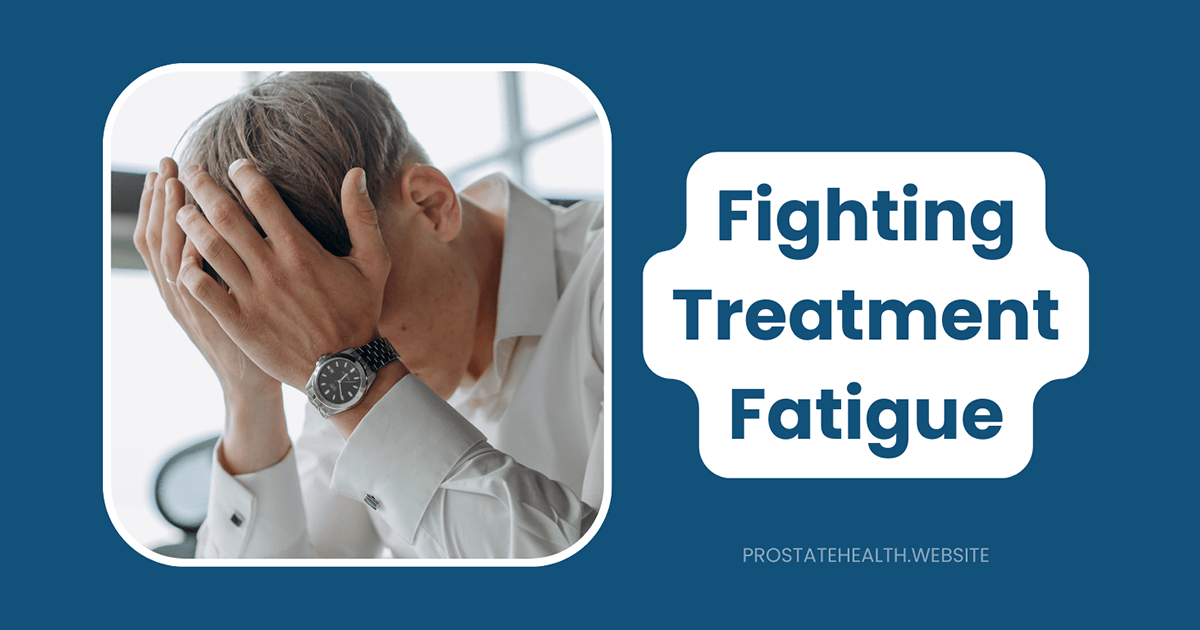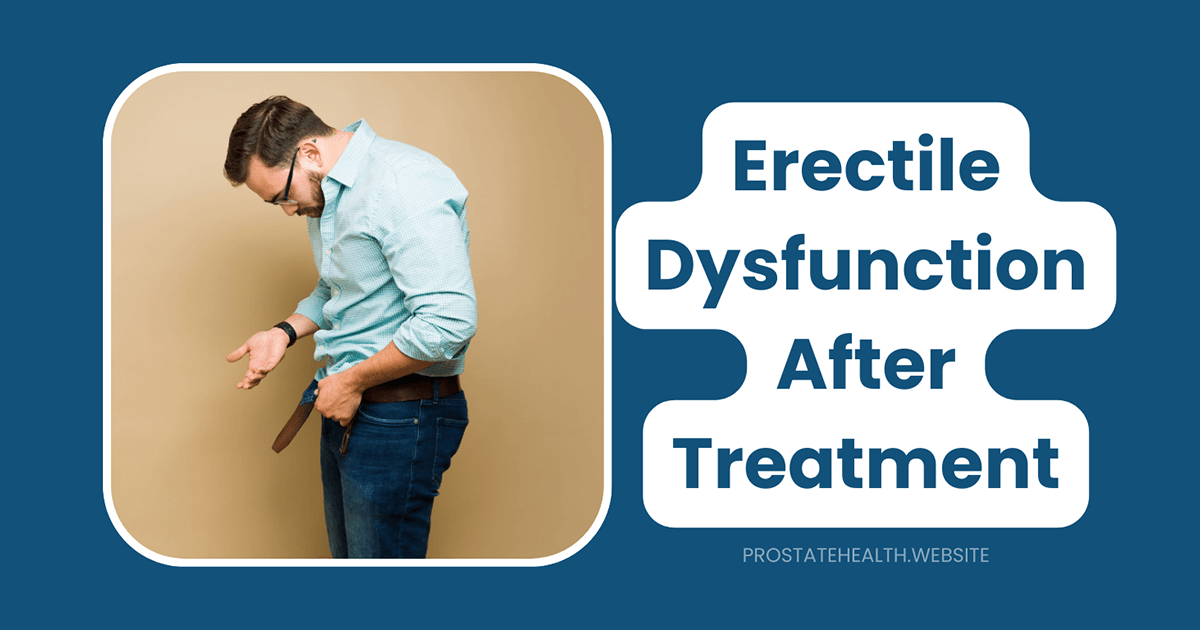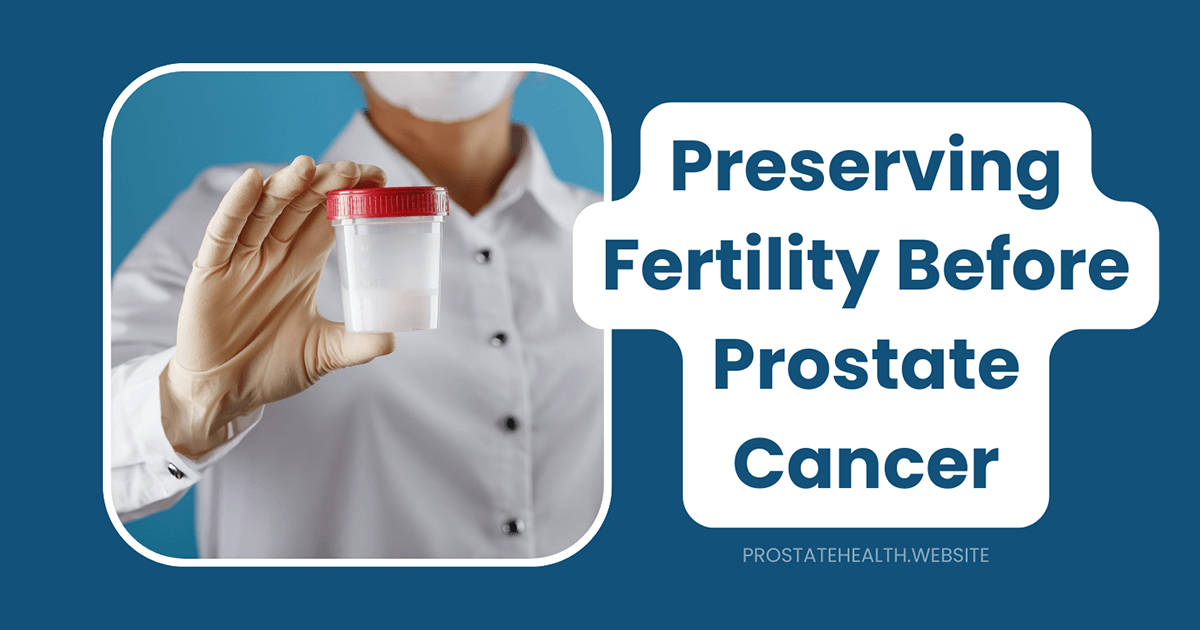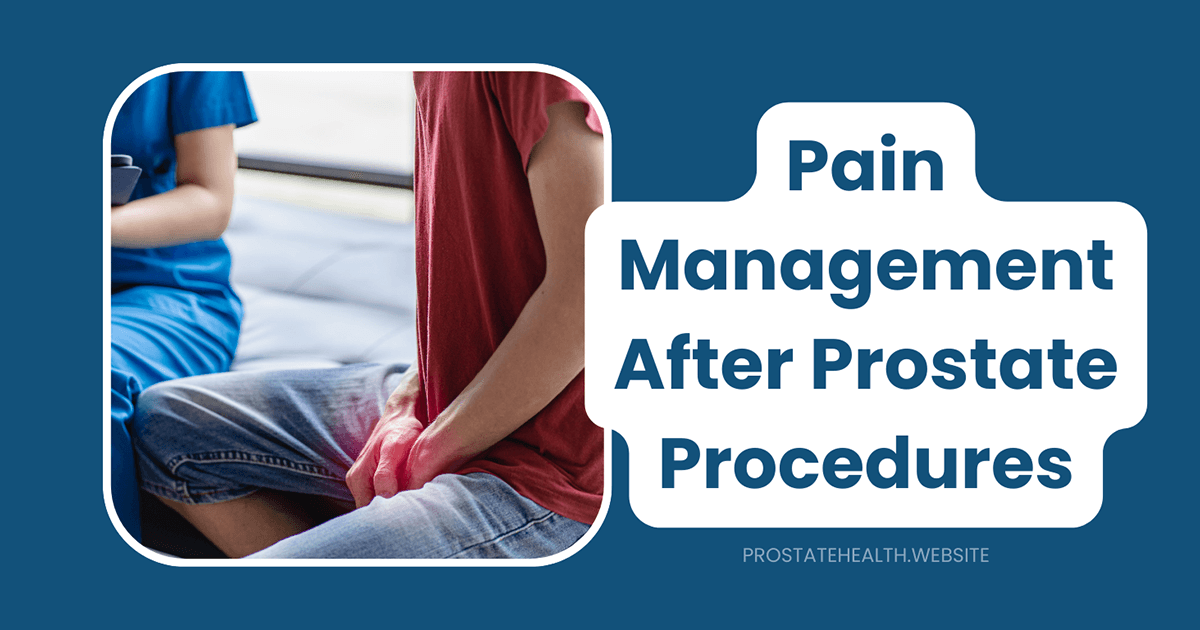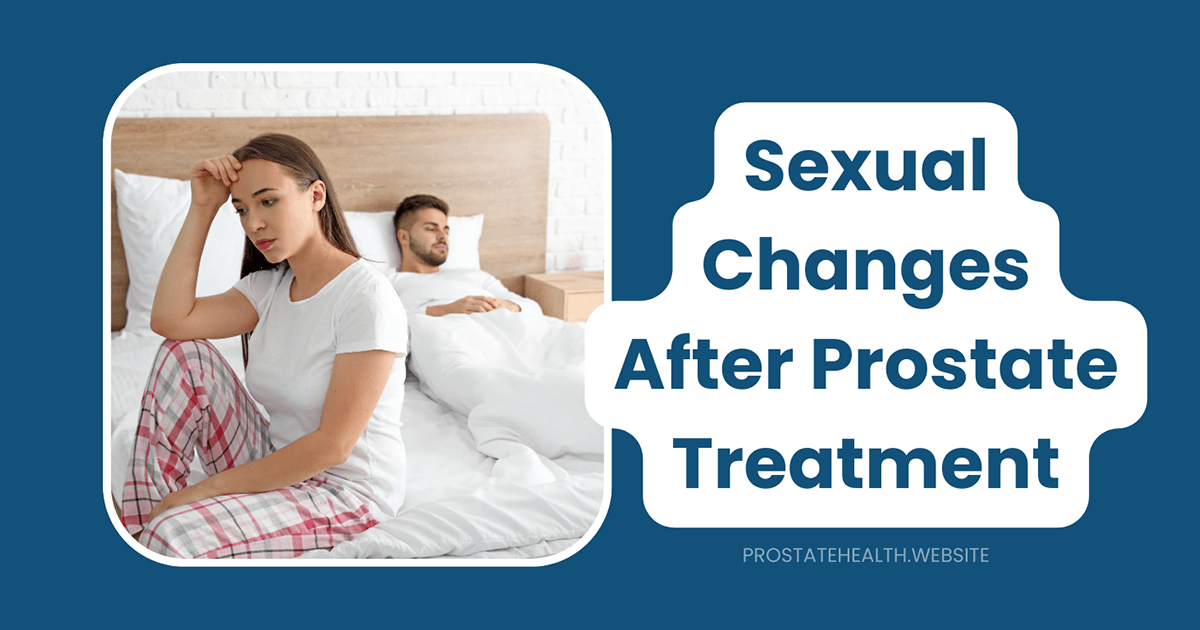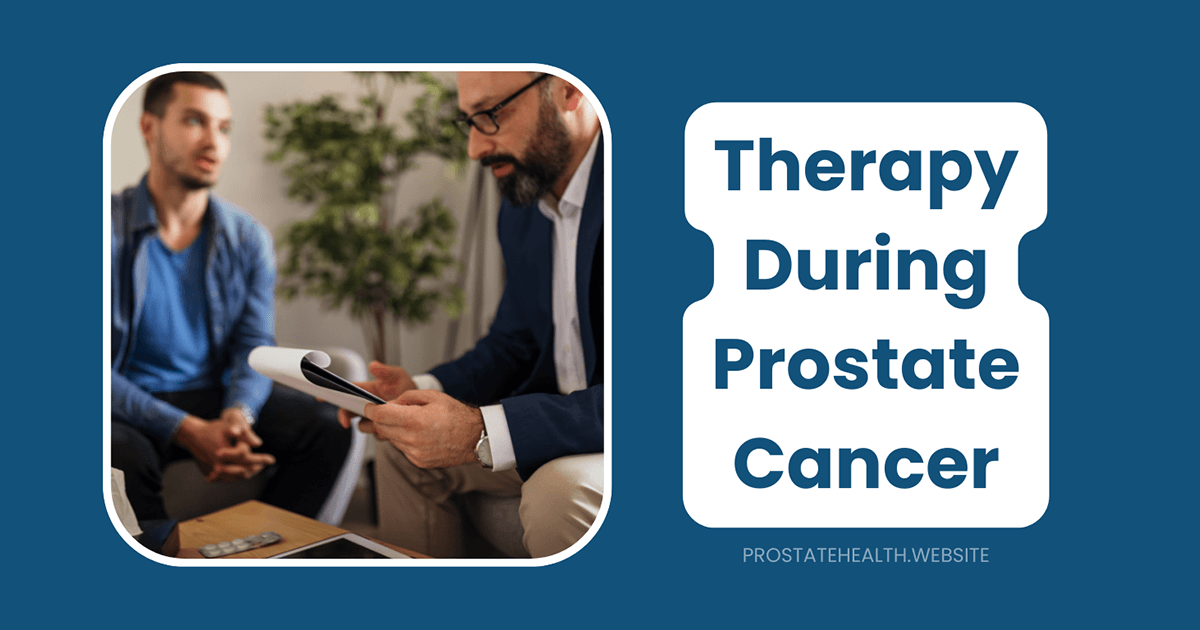Coping with Anxiety After a Prostate Cancer Diagnosis
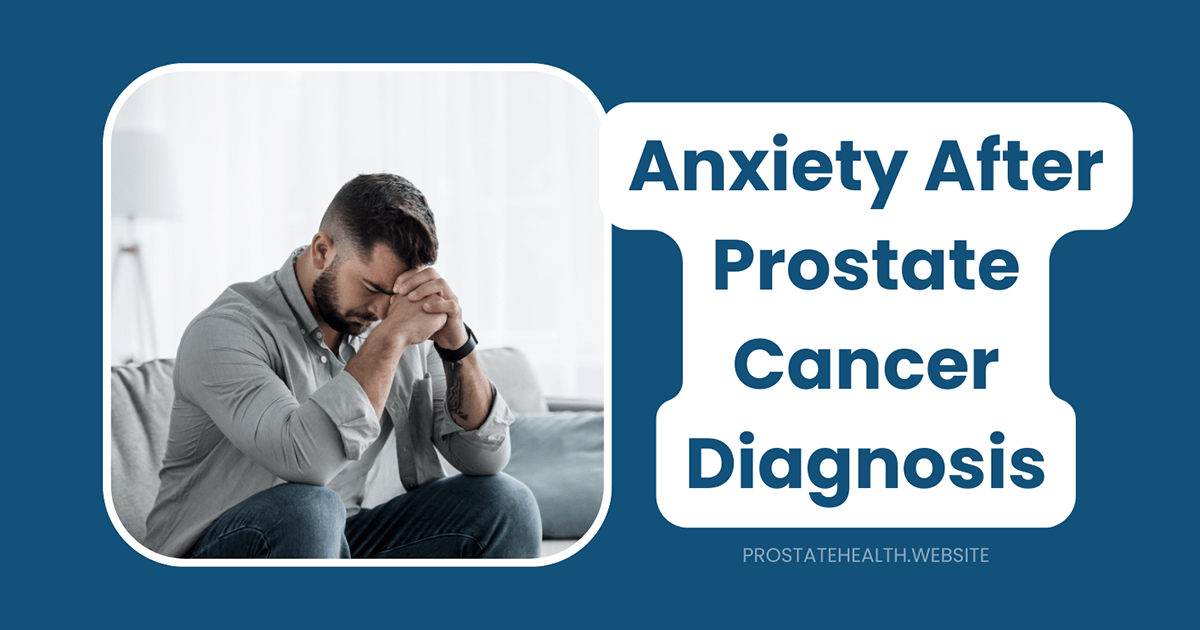
Receiving a prostate cancer diagnosis can feel like the ground has suddenly shifted beneath your feet. In an instant, your sense of security, your plans for the future, and your understanding of your own health can all be called into question. If you’re experiencing anxiety, fear, or emotional distress following your diagnosis, you’re not alone.
As someone who has spent years advocating for men’s health, I’ve spoken with countless men navigating the emotional terrain of prostate cancer. What I’ve learned is that while the medical aspects of cancer treatment receive much attention, the psychological impact often goes underdiscussed—yet it’s a crucial component of the healing journey.
In this comprehensive guide, we’ll explore the nature of anxiety after a prostate cancer diagnosis, why it occurs, and most importantly, evidence-based strategies to help you cope and thrive during this challenging time.
The Prevalence of Anxiety in Prostate Cancer Patients
Before diving into coping strategies, it’s important to understand just how common anxiety is among men with prostate cancer:
- Nearly half of all cancer patients report experiencing some anxiety
- Approximately 25% of cancer patients experience significant levels of anxiety
- Studies show that anxiety and depression can affect up to 30% of men with prostate cancer at some point during their cancer journey
- Anxiety levels tend to peak at specific points: at diagnosis, before treatment decisions, during treatment transitions, and during follow-up appointments
These emotional responses are not signs of weakness—they’re normal reactions to a significant life challenge.
Why Prostate Cancer Can Trigger Anxiety
Prostate cancer can trigger anxiety through multiple pathways:
1. Uncertainty About the Future
Prostate cancer comes with many unknowns: Will the treatment be successful? Will there be side effects? How will this affect my life plans? This uncertainty is a fertile ground for anxiety to develop.
2. Fear of Treatment Side Effects
Many men worry about potential side effects of prostate cancer treatment, particularly those affecting urinary function, sexual health, and overall quality of life.
3. Changes in Self-Image and Identity
A cancer diagnosis can challenge how you see yourself, your sense of masculinity, and your role in relationships and society.
4. Practical Concerns
Worries about work, finances, insurance coverage, and the ability to fulfill family responsibilities can compound emotional distress.
5. Physical Factors
Cancer and its treatments can directly affect brain chemistry and hormone levels, potentially contributing to anxiety and mood changes.
Recognizing Anxiety Symptoms
Anxiety can manifest in various ways, and recognizing these symptoms is the first step toward addressing them:
Physical Symptoms
- Rapid heartbeat or palpitations
- Shortness of breath
- Muscle tension or trembling
- Digestive issues (nausea, diarrhea, stomach pain)
- Sleep disturbances
- Fatigue
- Headaches
Psychological Symptoms
- Excessive worry or fear
- Racing thoughts
- Difficulty concentrating
- Irritability
- Feeling on edge or restless
- Sense of impending doom
- Rumination on worst-case scenarios
Behavioral Symptoms
- Avoiding medical appointments
- Seeking excessive reassurance
- Checking symptoms repeatedly
- Withdrawing from social activities
- Procrastinating on treatment decisions
- Using alcohol or substances to cope
If you’re experiencing several of these symptoms for more than two weeks, or if they’re interfering with your daily functioning, it’s important to discuss them with your healthcare team.
Evidence-Based Strategies for Managing Anxiety
Research has identified several effective approaches for managing anxiety after a prostate cancer diagnosis. Here are strategies with strong evidence supporting their effectiveness:
1. Psychological Interventions
A 2023 systematic review identified 22 randomized clinical trials showing that psychological interventions led to significantly greater improvements in anxiety, depression, and distress compared to usual care for prostate cancer patients.
Cognitive-Behavioral Therapy (CBT)
CBT helps identify and change negative thought patterns that fuel anxiety. It’s particularly effective for cancer-related anxiety and has been shown to be as effective as medication for many anxiety disorders without the side effects.
How it works: A therapist helps you recognize anxious thoughts (like catastrophizing or black-and-white thinking), challenge their accuracy, and replace them with more balanced perspectives.
Where to find it: Ask your oncology team for a referral to a psycho-oncologist or therapist experienced in working with cancer patients. Many cancer centers now have integrated psychological services.
2. Mindfulness-Based Approaches
Mindfulness-based stress reduction (MBSR) and mindfulness meditation have shown promising results for reducing anxiety in prostate cancer patients.
The REASSURE ME study, a large clinical trial examining MBSR for men on active surveillance for prostate cancer, has shown that mindfulness practices can significantly reduce prostate cancer anxiety and fear of progression.
How it works: Mindfulness teaches you to focus on the present moment without judgment, creating space between you and your anxious thoughts. Regular practice can reduce the physiological stress response and improve emotional regulation.
Getting started: Many cancer centers offer mindfulness programs specifically for cancer patients. Apps like Calm, Headspace, and Insight Timer also provide guided mindfulness practices you can try at home.
3. Support Groups
Connecting with others who understand your experience can be powerfully therapeutic. Research shows that support groups can improve quality of life and may even contribute to longer survival in cancer patients.
Types of support groups:
- In-person groups at cancer centers or community organizations
- Online forums and virtual support groups
- One-on-one peer support programs that match you with a prostate cancer survivor
Finding a group: Organizations like ZERO Cancer, UsTOO, and the American Cancer Society offer directories of prostate cancer support groups. Many hospitals and cancer centers also host their own groups.
As one participant in a prostate cancer support network shared: “Hearing from men who had walked this path before me gave me hope and practical wisdom I couldn’t get anywhere else. It helped me realize I wasn’t alone in my fears.”
4. Physical Activity
Regular physical activity is one of the most effective natural anxiety remedies. Multiple studies show that exercise can reduce anxiety symptoms by:
- Releasing endorphins, the body’s natural mood elevators
- Reducing muscle tension
- Improving sleep quality
- Boosting self-confidence
- Providing distraction from worries
Recommendations: Aim for at least 150 minutes of moderate activity weekly, such as brisk walking, swimming, or cycling. Even short 10-minute sessions can help reduce anxiety.
Caution: Always consult your healthcare team before starting a new exercise program, especially during or after cancer treatment.
5. Relaxation Techniques
Various relaxation methods can help manage the physical symptoms of anxiety:
Deep breathing: Simple breathing exercises can activate the parasympathetic nervous system, reducing the fight-or-flight response.
Progressive muscle relaxation: Systematically tensing and relaxing muscle groups can reduce physical tension associated with anxiety.
Guided imagery: Visualizing peaceful scenes can shift focus away from anxious thoughts and promote relaxation.
Yoga: Combines physical postures, breathing techniques, and meditation for comprehensive stress reduction.
6. Education and Information
Knowledge is power when it comes to managing cancer-related anxiety. Research shows that patients who understand their condition and treatment options often experience less anxiety.
Strategies:
- Prepare questions before medical appointments
- Bring someone with you to appointments to help process information
- Ask for reliable resources about your specific diagnosis and treatment options
- Consider seeking a second opinion if it will help you feel more confident in your treatment plan
However, be mindful of information overload. Focus on reputable sources and discuss what you learn with your healthcare team.
Creating Your Personalized Anxiety Management Plan
Everyone’s experience with anxiety is unique, so an effective management plan should be tailored to your specific needs and preferences. Here’s a framework for developing your personalized approach:
Step 1: Assess Your Anxiety
Start by understanding your anxiety patterns:
- When do you feel most anxious? (e.g., before appointments, at night)
- What specific fears or worries trouble you most?
- How does anxiety affect your daily life and functioning?
- What coping strategies have helped you with stress in the past?
Step 2: Build Your Support Team
Identify people who can provide different types of support:
- Medical team: Oncologist, urologist, primary care physician
- Mental health professionals: Therapist, psychologist, or psychiatrist
- Personal support network: Partner, family members, close friends
- Peer support: Other men with prostate cancer
- Practical support: People who can help with daily tasks, transportation, etc.
Step 3: Select Multiple Coping Strategies
The most effective approach typically combines several strategies:
For immediate anxiety relief:
- Deep breathing exercises
- Grounding techniques (like the 5-4-3-2-1 method: identify 5 things you see, 4 things you feel, 3 things you hear, 2 things you smell, and 1 thing you taste)
- Brief mindfulness practices
For ongoing anxiety management:
- Regular therapy or counseling
- Support group participation
- Daily mindfulness practice
- Regular physical activity
- Adequate sleep and nutrition
For specific anxiety triggers:
- Preparation strategies for medical appointments
- Communication scripts for difficult conversations
- Decision-making frameworks for treatment choices
Step 4: Monitor and Adjust
Keep track of what works and what doesn’t, and be willing to adjust your approach. What helps during one phase of your cancer journey might be less effective during another.
When to Seek Professional Help
While some anxiety is normal after a cancer diagnosis, certain signs indicate a need for professional intervention:
- Anxiety that significantly interferes with daily functioning
- Panic attacks
- Anxiety that prevents you from attending medical appointments
- Persistent sleep disturbances
- Thoughts of harming yourself
- Using alcohol or drugs to cope with anxiety
- Anxiety that doesn’t improve with self-help strategies
Don’t hesitate to discuss these symptoms with your healthcare team. Treatment options may include:
- Therapy: Particularly cognitive-behavioral therapy, which has strong evidence for cancer-related anxiety
- Medication: Anti-anxiety medications or antidepressants can be effective, especially in combination with therapy
- Integrated approaches: Combining conventional and complementary therapies
Supporting Partners and Family Members
Research shows that partners of men with prostate cancer often experience levels of anxiety similar to or even higher than the patients themselves. This has led some researchers to describe prostate cancer as a “couple’s disease.”
If you’re the partner or family member of someone with prostate cancer:
- Acknowledge your own emotions: Your feelings are valid and important
- Seek support: Consider joining a caregivers’ support group
- Maintain communication: Open, honest conversations about fears and needs benefit both of you
- Practice self-care: You can’t provide support if you’re depleted
- Consider joint counseling: Therapy for both of you can improve communication and coping
The Role of Spirituality and Meaning-Making
For many men, finding meaning in the cancer experience can be an important part of coping with anxiety. This might involve:
- Connecting with religious or spiritual practices
- Reflecting on personal values and priorities
- Finding ways to help others with similar experiences
- Creating a legacy through writing, recording stories, or other creative expressions
- Deepening important relationships
Research shows that meaning-focused coping can reduce anxiety and improve quality of life during cancer treatment.
Looking Forward: The Evolution of Anxiety Through the Cancer Journey
It’s important to recognize that anxiety often changes throughout the cancer journey:
At diagnosis: Shock and acute anxiety are common, often focused on immediate fears about survival and treatment.
During treatment: Anxiety may center on treatment side effects and effectiveness.
After treatment: Many men experience “re-entry anxiety” as they transition back to normal life, along with fears of recurrence.
Long-term survivorship: Anxiety may resurface around follow-up appointments or when experiencing new physical symptoms.
Understanding this evolution can help you anticipate and prepare for different emotional challenges.
Conclusion: Finding Your Path Through Anxiety
Anxiety after a prostate cancer diagnosis is a normal response to an abnormal situation. While it can be overwhelming, effective strategies exist to help you manage these feelings and maintain your quality of life.
Remember that addressing anxiety isn’t just about feeling better emotionally—it can also improve your ability to participate in treatment decisions, adhere to treatment plans, and maintain the supportive relationships that are so important during cancer care.
By combining professional support, self-help strategies, and connection with others who understand your experience, you can develop resilience in the face of cancer-related anxiety. Many men find that the coping skills they develop during this challenging time serve them well throughout the rest of their lives.
Most importantly, know that you don’t have to face this anxiety alone. Reach out, speak up, and connect with the many resources available to support you through this journey.

